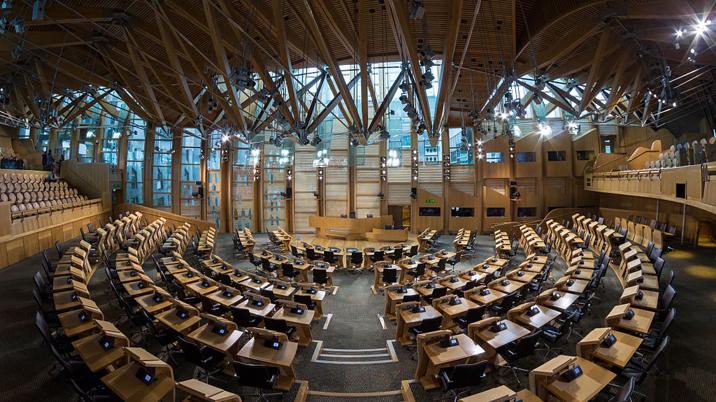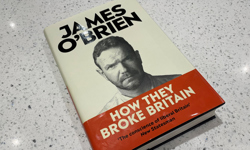
The Scottish administration’s Hate Crime and Public Order Bill, introduced in the Holyrood parliament this month, aims to extend considerably the category of banned speech. The proposed new measures would create several new categories where the communication – including reporting – of any material considered threatening or abusive under a raft of criteria would risk prosecution.
“These proposals, while on the surface designed to protect vulnerable people, have the potential to usher in draconian measures where a host of pressure groups will be able to stifle or close down debate on important issues,” commented executive director of the Society of Editors Ian Murray.
“And although these are designed for Scotland, any media organisation that publishes or broadcasts north of the border could find themselves caught up or at the very least there will be a chill placed on their work.
“Looking to the future, there is also the risk that any draconian measures adopted by the Scottish government will be taken up in other parts of the UK, particularly in England and Wales where The Law Commission is currently consulting on a possible expansion in English hate-crime law.”
At present, Scottish hate-crime law largely parallels English law in criminalising the stirring up of racial hatred by any behaviour that is threatening, abusive or insulting. Unlike English law, however, Scots law does not at present cover the stirring up of anti-religious or anti-gay hatred.
Following a review by Lord Bracadale, Holyrood now proposes leaving racial-hatred law largely alone but introducing three new offences.
The bill sets out proposals that it will become a crime to doing anything, or communicate any material, which is threatening or abusive and is intended or likely to engender hatred based on age, disability, religion, sexual orientation, transgender or intersex identity.
It will also be a crime to possess any such material if you hold it with a view to communicating it.
And there will be criminal sanctions for anyone involved in the management of any organisation who fails to take steps to prevent any of the new crimes.
The penalty in each case is up to seven years in prison.
In addition to all this, the government proposes stiffer sentencing for hate crimes based on age and there is a provision for the terms of the bill to be later extended to criminalise misogynistic speech.
The Bill does include provisions to protect freedom of expression in certain circumstances. It specifically permits discussions or criticisms of religions and of sexual conduct or practices.
However, in an important differential between present English law and the proposed Scottish law, it would not been necessary to prove intent.
“The Scottish government states that this approach strikes the right balance between criminalisation and freedom of speech,” added Murray. “But it appears to be just the opposite and designed to silence any debate on the areas covered.”
“The notes provided with the Bill explain that a requirement to show intent to stir up hatred is not desirable because it would make it prohibitively hard to achieve a prosecution rather than enabling journalists and others to defend their work.
“In their present form, the proposed new laws appear to be the perfect example of reversing the long-held understanding that no one has the right not to be offended. For the media this is very alarming.”
In a recent article for Spiked, Andrew Tettenborn professor of commercial law and a former Cambridge admissions officer, commented: "Holyrood also admits that, with the exception of hostility to religion, there is actually no evidence of either any serious problem or pressing need to extend the criminal law to cover characteristics like sexual orientation, age, disability, transgender or intersex identity
"The introduction of a suite of stirring-up offences covering all of them, it is said, will introduce a measure of justified ‘parity’. This will allow the law to serve an important symbolic and educative function, sending a clear message that this type of behaviour attracts particular condemnation by society and will not be tolerated.
"In other words, it is now apparently the function of Scots criminal law to punish behaviour simply to make a virtue-signalling point, and to provide as many identitarian pressure-groups as possible with an equal chance to suppress speech and behaviour they do not like."
Ian Murray added: “The issue of hate speech is understandably of a sensitive nature. But to create laws so draconian they stifle legitimate debate and allow anyone with hurt feelings to trump long-held freedom of speech rights would be wrong.”












